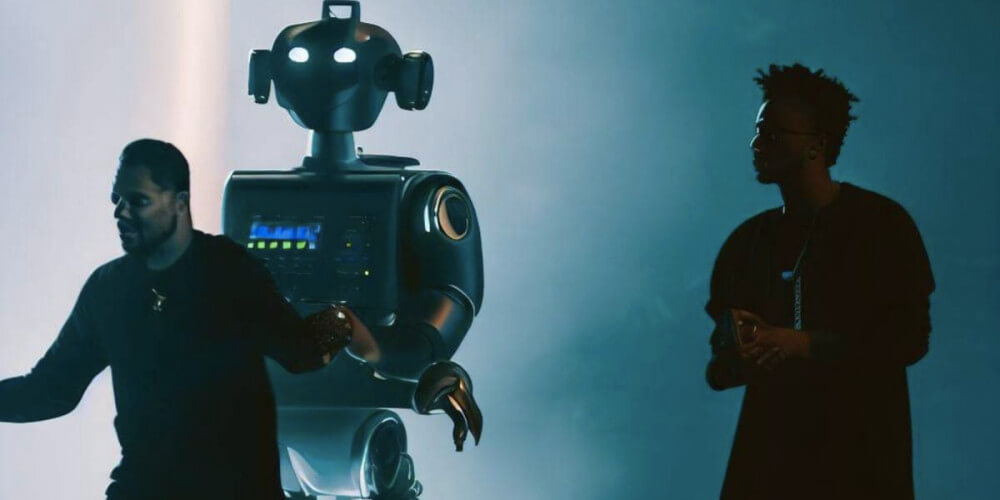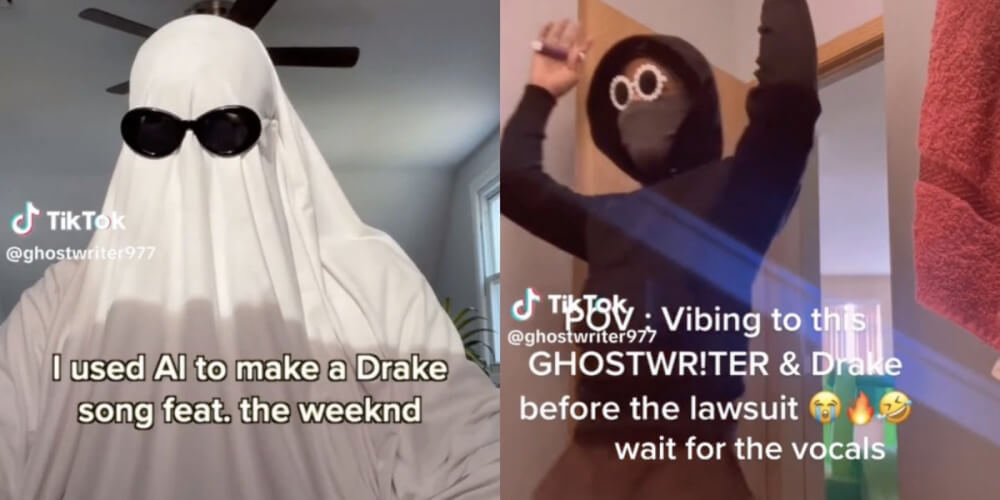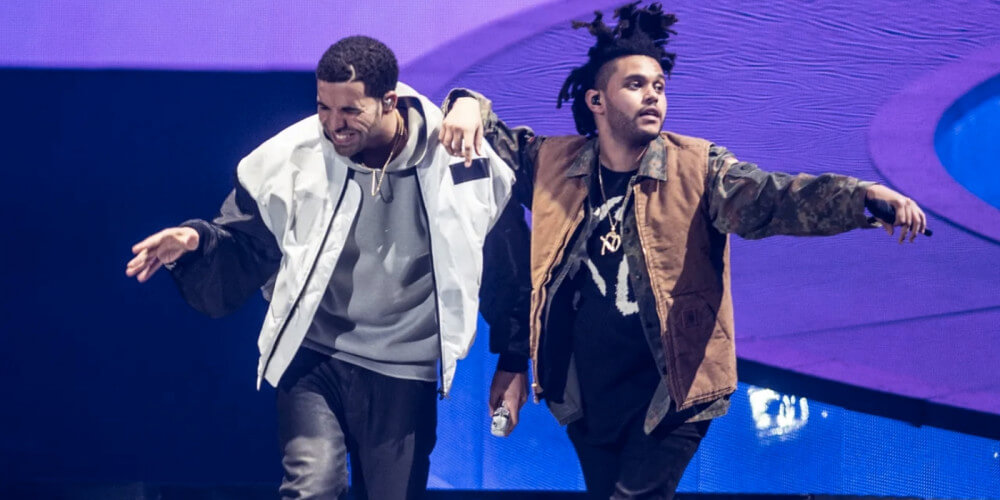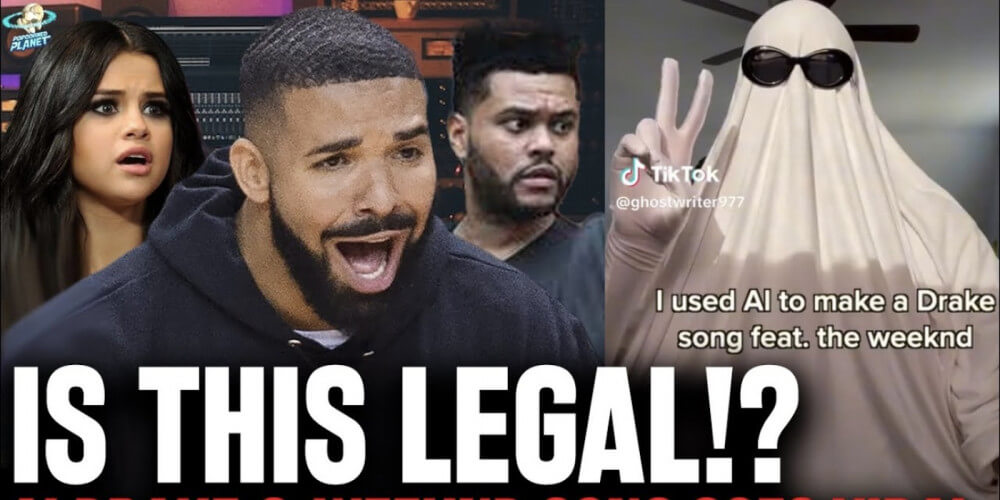Have you ever wondered what it would sound like if Drake and The Weeknd collaborated on a song about Selena Gomez? Well, you don’t have to imagine anymore, because an AI-generated song has done it for you. The song, called “Heart On My Sleeve”, was created by an anonymous TikTok user who claims to have used artificial intelligence to clone the voices of the two Canadian stars. It simulates the two singers trading verses about their past relationships with Gomez, who dated The Weeknd in 2017 and was rumored to have a fling with Drake in 2018.
This song has gone viral on social media, with more than 8.5 million views on TikTok and 254,000 streams on Spotify. Many listeners were impressed by how realistic and convincing the AI voices sounded. However, others were creeped out by the ethical implications of using someone else’s voice without their consent.
#1. How was the Drake and The Weeknd Song AI made?
 Source: The Indian Express
Source: The Indian Express
However, based on some clues in the song and online sources, we can make some educated guesses about how the AI process worked.
One possibility is that @ghostwriter used a website called uberduck.ai. This website allows anyone to create songs using soundalike voices of pop’s biggest stars. Uberduck.ai uses a deep learning technique called WaveNet, which synthesizes speech from audio samples. Users can type in lyrics and choose from a variety of voices, including Drake, The Weeknd, Eminem, Kanye West, and more.
 Source: VICE
Source: VICE
Regardless of the exact technique used, the AI process likely involved three steps: data collection, model training, and audio generation.
Data collection involves gathering a large amount of audio samples from the target speakers. The more data available, the better the quality and diversity of the output. Model training involves feeding the data into a neural network and letting it learn the patterns and features of the speech. Audio generation involves using the trained model to produce new speech from text or audio input.
Also trending: Chris Smith Girlfriend Petara Cordero: A Tragic Love Story
#2. What are the implications of the Drake and The Weeknd Song AI?
 Source: ZDNet
Source: ZDNet
On one hand, AI-generated music may open up new possibilities for artists and fans as a creative tool. For example, French DJ David Guetta recently used uberduck.ai to mimic the voice of Eminem. And then, he added it to one of his instrumentals. He told the BBC that he believes “the future of music is in AI” and that it can be useful “as a tool” like the drum machine and the sampler before it.
On the other hand, some people may see AI-generated music as a threat to originality and authenticity in music. For example, Drake recently expressed displeasure at his voice being cloned by AI. He posted on Instagram: “This is the final straw AI”. He also received a letter from Universal Music Group (UMG), his record label, asking him to stop using AI to access their music library. UMG warned that they will “not hesitate to take steps to protect our rights and those of our artists”.
 Source: YouTube
Source: YouTube
These are some of the questions that need to be addressed as AI becomes more prevalent and powerful in music production. As @ghostwriter said: “This is just the beginning”. We are entering a new era where we need to rethink what music means and how we create it.
If you enjoyed this article, don’t forget to check out our homepage for more Entertainment, movies, news, celebrities, and funny stories at Aubtu.biz.